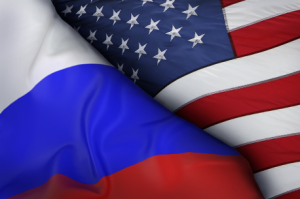U.S. accuses Russia of violating a key Cold War treaty
Thursday, July 31st, 2014 7:41:04 by Khalil Khan
Disputes between Washington and Moscow, old rivals of the Cold War, accumulate each day. The Obama administration accuses Russia of violating the treaty, signed in 1987 by U.S. President Ronald Reagan and Soviet leader Mikhail Gorbachev, banning tests medium-range missiles. The evidence, according to Washington, Moscow has made are ” very serious issue ” that forces launch a high-level dialogue between the two country, now known war and Ukrainian diplomatic escalation with echoes of earlier times.
An Obama administration official, who requested anonymity, confirmed the information by e-mail, released Monday night by The New York Times.
“The United States has determined that the Russian Federation violated its obligations under the Treaty on Intermediate -Range Nuclear Forces (INF),” said the official. ” More specifically, the 2014 Compliance Report includes the conclusion that the Russian Federation violated the obligations under the INF Treaty, of not possessing, producing, or flight testing of a cruise missile launched from land with capacity range from 500 to 5,500 kilometers, or possess or produce launchers of such missiles. “
U.S. believes Russia began to perform these tests in 2008, according to The New York Times explained last January, in a first information revealed suspicions now made aloud.
Also according to the Times, the U.S. president, Barack Obama, announced Monday the findings to his Russian counterpart, Vladimir Putin. The State Department plans to publish on Tuesday said Compliance Report, according to the Associated Press.
“It is a very serious issue that we tried to address with Russia for a while,” said the official.
The dispute over the nuclear missiles comes at a time of increased tension between the U.S. and Russia in recent years. Relations between the two countries seemed on track thanks to the reset of 2009, the year that Obama came to the White House. The reset was an attempt to reset the counter bilateral problems.
The deterioration was evident a year ago, when Russia hosted Edward Snowden a former employee of the American intelligence services that several journalists handed secret documents about the wiretapping of the first power.
The crisis in Ukraine, following protests in February that precipitated the fall of the pro-Russian government in Kiev and the subsequent annexation of Crimea by Russia, has empozoñado further the relationship. In recent days, the White House has brought to Russia as a necessary accomplice demolition on 17 July, a passenger jet flying over Ukraine.
The White House argues that the pro-Russian rebels launched a missile by mistake the plane, but argues that it was the Russians who, arm them and train them in the use of this material, created the conditions for the tragedy. U.S. and its EU allies are preparing a new round of sanctions targeting Economics convince Putin to stop aiding insurgents in eastern Ukraine.
Tension between the U.S. and Russia for European territory in some ways evokes the struggle between the U.S. and the Soviet Union between the late forties and 1989, when the curtain fell Steel, who started Europe in two. The treaty of 1987 between Reagan and Gorbachev was one of the decisions that helped bury conflict in which the superpowers fought without a single shot fired directly.
That treaty ended ten years of discussions, negotiations and protests in Europe installation of Soviet SS- 20 missiles and the U.S. reply, the Pershing. This episode marked the last stage of the Cold War. It divided Europeans, fueled fears of a nuclear holocaust in the Old Continent and promoted peace and environmental movements that transformed the political landscape of countries like Germany.
With the end of the Cold War and the fall of the Soviet bloc, the original reasons for disarmament began to seem distant. In recent years, Russia has complained that the limits imposed by that treaty and make little sense and has argued that prohibited missiles could be helpful to new threats from its immediate neighborhood.
” It’s a little difficult to understand why the Soviet Union accepted [ the treaty ] then, since these weapons, in any case, have little relevance to the Americans, because they have no place to use them,” Putin said in a speech in 2013. ” But for the Soviet Union and Russia today, especially considering that some of our neighbors are developing offensive weapons of this type, that decision was the least debatable.”
The preferred option is now Washington sit down with Moscow and get future meets the treaty and remove weapons ” verifiably “, ie, possibly with international inspections.
If Russia does not comply, said the official in the Obama Administration, ” United States obviously consult this matter with its allies to consider the impact of the Russian rape in our collective security.”
Tags: cold war, Russia, United StatesShort URL: https://www.newspakistan.pk/?p=46896

















